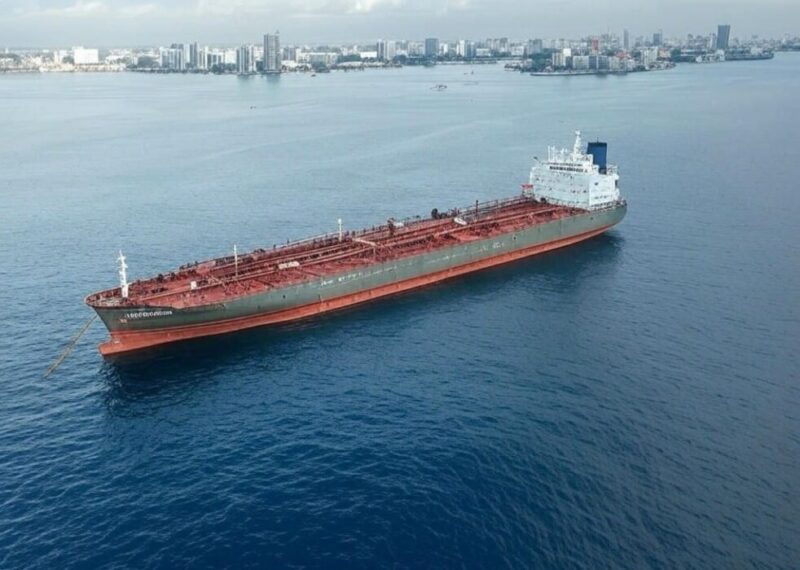
Supreme Court Upholds an Order for Interim Relief in Aid of Foreign Arbitration
Introduction
- For the first time in the Maldives, a High Court order for interim relief granted in aid of a foreign arbitration has been upheld by the Supreme Court. This marks a significant step for development of jurisprudence under the Maldives Arbitration Act 2013 (Act no. 10/2013) (the “Act”).
- S. 45 of the Act empowers the High Court as the first instance court, to grant orders for interim relief in aid of arbitration – whether domestic or foreign.
- Since the Act came into force in July 2013, a total of 5 applications have been filed in the High Court for interim relief in aid of foreign arbitration[1]. While the High Court has issued 3 orders under S. 45 of the Act to date, this is the first time such an order has been upheld by the Supreme Court. The Supreme Court’s decision was handed down on 6 April 2025 in DSG Shipping Inc & Anor v OceanEXL Mena FZC [2025] SC 14.
Background
- The underlying dispute is between a ship owner (“Owner”) and charterers (“Charterers”) of a vessel (the “Vessel”). Owner and the Charterers were bound by a time charterparty which incorporates Shelltime 4 terms (the “Charterparty”). A separate party was engaged by the Owner to operate the Vessel (the “Operator”). The Vessel was at Male’ anchorage when the dispute arose.
- The Charterparty is governed by English law, and the parties had agreed to resolve disputes arising thereunder by way of arbitration seated in London. Accordingly, Charterers referred a dispute to arbitration in December 2024. Given that the Vessel was within the Maldivian waters, Charterers subsequently sought interim relief in the Maldivian High Court in aid of the London arbitration.
- Two orders were issued by the High Court upon application of the Charterers. The first order – issued in January 2025 – was for the arrest of the Vessel pending a decision of the Tribunal in the underlying arbitration (the “Arrest Order”). The second order – issued in February 2025 – was for delivery up of certain cargo belonging to the Charterers which were on the Vessel, or to provide security for the value of such cargo pending a decision by the Tribunal in the underlying arbitration (the “Cargo Order”). Both these orders were appealed in the Supreme Court.
The Appeals
- Owner and the Operator (collectively, the “Appellants”) filed two separate appeals in the Supreme Court against the interim relief orders of the High Court. As these appeals involve the same parties and relate to the same underlying arbitration, both appeals were consolidated and heard together.
- As regards the appeal against the Arrest Order, the Appellants’ main issue of contention was that the Appellants were not afforded sufficient time to secure legal representation, and that the Arrest Order was issued in their absence. This, the Appellants maintained, went against the fair hearing rule stipulated in the English Arbitration Act 1996 (the “English Act”).
- As regards the appeal against the Cargo Order, the Appellants’ advanced three main arguments:
- that an arbitral tribunal in a London-seated arbitration would not have the power to grant interim relief pursuant to the English Act;
- that the Appellants were not afforded sufficient time to secure legal representation, and that the Cargo Order was issued in their absence, in contravention of the fair hearing rule stipulated in the English Act; and
- that the Cargo Order was granted despite the Charterers’ failure to establish the three-pronged test for granting interim injunctions in the Maldives.
The Decision
- With respect to the issue raised by the Appellants in their appeal against the Arrest Order, the Supreme Court held that the High Court was not bound by normal procedures laid out in the Civil Procedure Code or the Civil Procedure Rules when granting interim relief pursuant to s. 45 of the Act. Delays in issuing interim relief in such cases, the Supreme Court observed, may render the subsequent order granted obsolete.
- In this regard, the Supreme Court was of the view that the High Court may at their discretion make decisions relating to applications under s. 45 of the Act with or without a hearing, and depending on the circumstances, in the absence of the respondent as well. For the purposes of s. 45 of the Act, the Supreme Court held that the High Court was only required to ensure that the tribunal in the underlying arbitration was empowered to grant interim relief. However, this does not allow a blanket application of the underlying governing law for the purpose of setting out the procedure of the proceedings.
- With respect to the issue raised by the Appellants in their appeal against the Cargo Order, the Supreme Court made the following observations:
- that the plain reading of the English Act was clear enough to hold that an arbitral tribunal in a London-seated arbitration would have the powers to grant interim relief;
- that the High Court was not bound by normal procedures laid out in the Civil Procedure Code or the Civil Procedure Rules when granting interim relief pursuant to s. 45 of the Act; and
- that the Charterers had satisfied the High Court of the three-pronged test laid out in Nexbiz Limited v Anti-Corruption Commission [2012/SC-A/21].
- However, the Supreme Court was of the view that even though the Charterers had satisfied the conditions for grant of interim relief in aid of foreign arbitration, the relief granted by the High Court within the Cargo Order lacked the characteristics of an interim order. This, the Supreme Court observed, went against the High Court’s Rules relating to Internation Arbitration. Furthermore, the Supreme Court held that the alternative orders within the Cargo Order leads to uncertainty as to enforcement of that order.
- Accordingly, the Supreme Court upheld the Arrest Order on merits and overturned the Cargo Order on account of irregularities.
Key Takeaways
- The Supreme Court’s decision provides us with a few important points to consider:
- when granting interim relief pursuant to s. 45 of the Act, the High Court is not bound by normal procedures laid out in the Civil Procedure Code or the Civil Procedure Rules;
- in an application for interim relief under s. 45 of the Act, the High Court may not apply the underlying governing law for the purpose of setting out the procedure of the proceedings;
- the main question to be determined by the High Court in an application for interim relief under s. 45 of the Act is whether the arbitral tribunal in the underlying arbitration is empowered to grant such relief;
- the relief sought may not be granted by the Courts if it has a sense of permanence, irrespective of whether the applicant has satisfied the Court of all the other conditions for grant of such relief.
Comments
- The Supreme Court’s decision is certainly a positive step towards development of the Maldivian jurisprudence in arbitration-related court litigation. The High Court – and Supreme Court for that matter – have come a long way since the first application filed under s. 45 of the Act was rejected by the High Court in 2017.
- While this particular area of law is still in need of much legislative development, both the Arrest Order and the Cargo Order demonstrated the Maldivian Courts’ positive attitude towards a more arbitration-friendly regime.
The Charterers / Respondent was represented by Mohamed Shafeeu of Muizzu & Co LLP; shafeeu@muizzulaw.com
[1] The first application (filed in 2017) was rejected by the High Court, while the second application (filed in 2020) was withdrawn by the applicant. The third (2020), fourth (2025) and fifth (2025) were all heard and granted by the High Court. Muizzu & Co LLP represented either of the parties in all of those matters.
